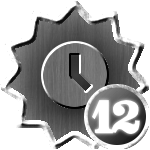-
Posts
90 -
Joined
-
Last visited
About Schumann

- Birthday 04/13/1989
Recent Profile Visitors
The recent visitors block is disabled and is not being shown to other users.
Schumann's Achievements
-
I'm quite passionate about this topic; music exemplifying nature is something that speaks right to my soul. I'd be interested in hearing more suggestions. I'm no expert, but if one tries searching for nature words in compositions, it may yield many results though the quality of being like undeveloped program music is dependable. Woodwinds often emulate nature sounds quite naturally, the flute, bassoon, clarinet. Here are two of my favorite sections of music that I think exemplify some lush beautiful nature: 7:13 - 8:13 of Dvorak 7, and in definitely a more lyrical and mystical sense 1:38 - 2:32 of .
-
Ah, much thanks! As promised, I hereby bestow this mess upon Ian: ................................................................................................................................................................................................................................................................................................................................................................................................................................................................................................................................................................................................................................................................................................................................................................................................................................................................................................................................................................................................................................................................................................................................................................................................................................................................................................................................................................................................................................................................................................................................................................................................................................................................................................................................................................................................................................................................................................................................................................................................................................................................................
-
I need help. Should be an easy one, I just can't recall it or find it on youtube so I made a sketch from memory. My guess is Ravel. Winner gets 2000 points. is it ravel.mp3
-

How do you compose when you're not sitting down composing?
Schumann replied to Anecca's topic in Composers' Headquarters
Standing is for weaving together new combinations and gaining perspective. Sitting is for creating new things and driving them home. I often do both at the same time. Both are passionate--the latter is more focused and purposeful, metaphorically speaking, the former more explorative. -

John Adams: Genius or Boring? (or something in between)
Schumann replied to Morivou's topic in Repertoire
.- 47 replies
-
- john adams
- adams
-
(and 2 more)
Tagged with:
-
This works well in Ab imo. I - x - N - iii - I (x where you input a progression) This works well in any transition to a new key, for instance as v - I in the new key D major from B major. VI - v - I or if you invert the harmonies so its A-Dm it works just as well as a progression that stays in B major. I - (b)VII - (b)iii For you to resolve the second example is up to you, but is a very smooth sounding progression. I mention it because it is basically the same as your second example. I personally do not like to think of progressions or keys in certain 'modes.' They are all the same 'mode' (and when you change the scale for brief periods you are 9 times out of 10 changing the key back and forth), just that a key can be at different degrees. The I - (b)VII - (b)iii is not proper, but just helps one to envision it from the key of B major. It is more logical to write it as VI - V - i, where D is the key and B is the tonic (it is often up to interpretation what the tonic is. Usually it is the mathematical mode, the basis that links the piece together). This is not basic music theory, but it is less counter-intuitive in building successful harmonies.
-
I take it you don't like Tchaikovsky either. Then give a piece that he took Romeo and Juliet from, please, so I can understand too.
-
Thanks for sharing. I'll be sure to look at it more in depth, I just noticed it now. I used to take a bunch of different classical pieces and invert the whole thing, a full retrograde invert. Meaning Beethoven-flipping-the-sheet-music-upside-down style, then transpose all the parts to their registers. From there you may need to make a few bass adjustments, but you have all kinds of new upside down music awaiting you, and lots of it is good. I think Beethoven did some of that too, in his symphonies. His 3rd for example, has a number of melodies the same upside down. The rules are different in the parallel universe though :) Some compositions I will work back and forth between both dimensions. Flip the sheet music over, write some more to fit that end. Or invert without flipping. Thy become different shades, constantly weaving things into new colors and possibilities.
-

Please help me to find music similar to these
Schumann replied to Schumann's topic in Composers' Headquarters
So are you talking about this one? It is 10 minutes long. I listened to it twice but don't hear what or where you're talking about. Just to make sure we're on the same page, I don't really care about the "harry potter' track of music, only those couple of seconds I mentioned.I'll take a seat at the second concert you mentioned. Update: I listened. I'm not sure what you're hearing I don't hear. If you could point it out for me, that would be great. Thank you. I'm not cutting you off, but out of curiosity: is anyone else curious about these clips' origin, or is it just the usual, music is music? I would really like to hear the next person's ideas while I wait.- 7 replies
-
- offenbach
- similarity
-
(and 2 more)
Tagged with:
-

Please help me to find music similar to these
Schumann replied to Schumann's topic in Composers' Headquarters
Hi thank you both. Do you think you could be more specific? ie. what would be a good example for a concert piece? I'm listening to Berlioz but don't hear any clear reference.- 7 replies
-
- offenbach
- similarity
-
(and 2 more)
Tagged with:
-

Please help me to find music similar to these
Schumann replied to Schumann's topic in Composers' Headquarters
Well, to be honest it was upon chance that I was able to relate the first segment to the second in some way. This may be the only weak link I can think up at the moment, because any other idea I may have is not coming to mind directly, so I'm really awaitingly open to every input. It will likely be of help to me. I'm glad you've shown interest in this topic. However the two I have chosen are really kind of old favorites of mine that I just began to reunite with in a more determined way and really start to wonder about. I felt similarly about the beginning melody of Can Can as I did upon rehearing in my head Chopin's Grand Waltz Brilliante, I did not re-listen to the pieces, but the melodies which were hauntingly stuck in my head without a reference, like they have very important features. The first video segment differs in that is just has an amazing effect more than anything, one that I can't yet trace elsewhere (it may even be as simple as the style of repetitive horns John Williams and Tchaikovsky use as accompaniment :), yet the segment has more attention drawn to it, like its true influences imply more, in one sense because it sounds like a melody with a rhythm and harmony underneath it. I would like to know more if possible.) I have a general lack of knowledge about any influences.- 7 replies
-
- offenbach
- similarity
-
(and 2 more)
Tagged with:
-
I would never consider Tchaikovsky as overrated; that sounds frankly just , but to each his own. I'm just curious as to what kind of brain gets off to thinking in this manner, so I will have to privately stalk you for the time being. His 1st Piano Concerto to dislike, out of anything of his? That's like one of the best melodies I've heard. Self-indulgent, well sure. Where else would he have pulled that from?I have a difficult time choosing the most overrated composer though. There are so many typical pieces and then just as many pieces that are difficult to judge in terms of objective quality. Certainly one must take influence and impact into account, which is why I use the phrase 'typical pieces,' versus pieces that originated all of these typical pieces. This has nothing to do with the latter compositions, but everything to do with calling the former highly influential "overrated."
-
I IV and V stand as a illusory progression. When you speak of functional harmony it is bIII which acts as your resolved and then unresolved I. So I chose to see that John Williams uses traditional functional harmony, not a set of borrowed roots.
-
I understand this topic may be asking something vague (I'm not asking anything specific yet I am looking for something specific), so please do feel free to add whatever musical knowledge you have to it. It's very simple I think, to grasp these short snippets, but I find these two to be rather intelligent and enjoyable to listen to, if I could only extract more influence from something of their length. I would love to get some more ideas as to similarities or possible influences. I'd much appreciate your help and like for you to listen. These two pieces are pretty mainstream as far as classical music, but I regard here really only the specific passing of notes within the specified time frame. The first (1:42-1:48) is the quick passing of the french horn/trombone and accompaniment beginning at 1:42 and finishing only several seconds later, its unfortunately so short The same theme is introduced and modeled similiarly only some bars before it, played on the flutes, though the horns definitely give an interesting feel. I would really simply just love to hear more in this style and know what this 'repetitive, rhythmic, joyous, perhaps jolly' component may have been influenced by. I may already have weak ideas, but the purpose is for you to hopefully show me something I don't know about. It could be obvious. The second (0:11-0:23) faintly resembles the compositional intelligence of the first, except it is more melodically drawn and developed with less 'effect', the melody that begins after 0:11 and stops at 0:23, Many of you probably know it In some sense it does feel like a melody of simple introductory chance, though there is a certain intelligent purposefulness to the melody and harmony, in of course its simplicity, that seems supernatural or elite to me, In both sudden cases, which I'm sure is a common feature of musical subjectivity. (Let me remind myself of a similar horn sound from the first, in this soundtrack that is not so within the 'pop' harmony at 3:14 , a track of which interestingly the first clip I posted has a similar rhythmic feel to, in the guitar-to-strings hay dance of sorts at the beginning of the third clip: 0:21, which I quite enjoy. Feel free to comment on these segments too.. Not directly related but gives some notion.)Please feel free to comment here at any rate of similar discussion, or any ideas about just one of these. Thanks for reading/listening to my simple pleasures.
- 7 replies
-
- offenbach
- similarity
-
(and 2 more)
Tagged with:
-
Interesting or boring?




